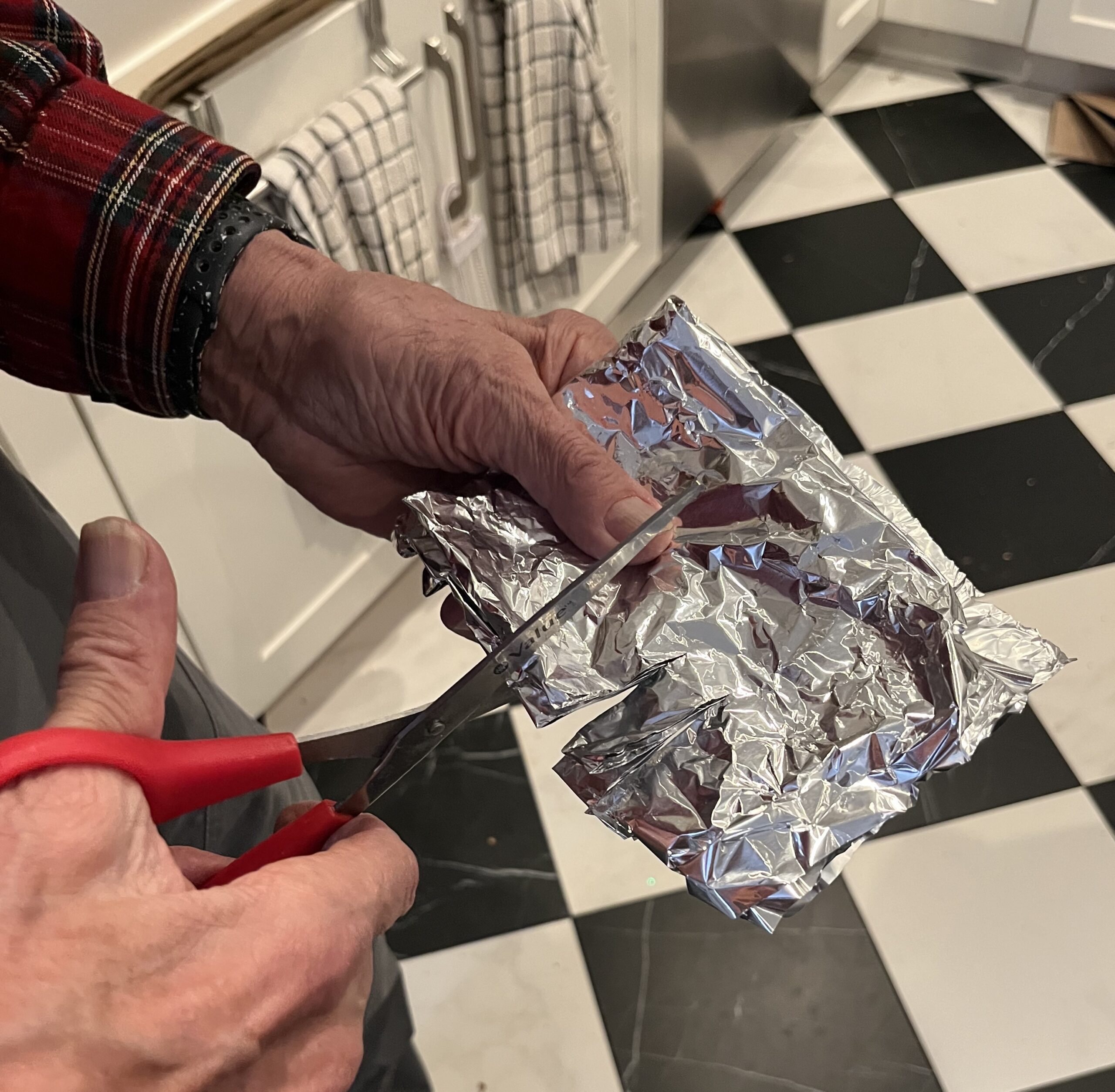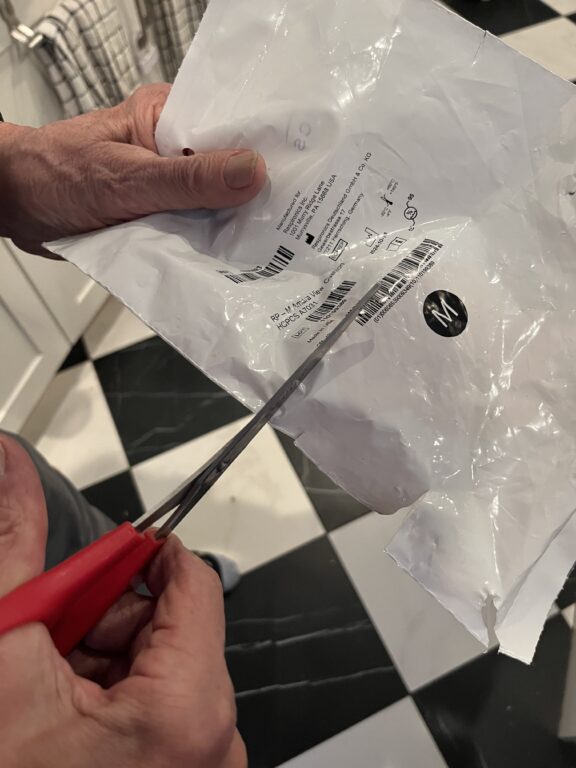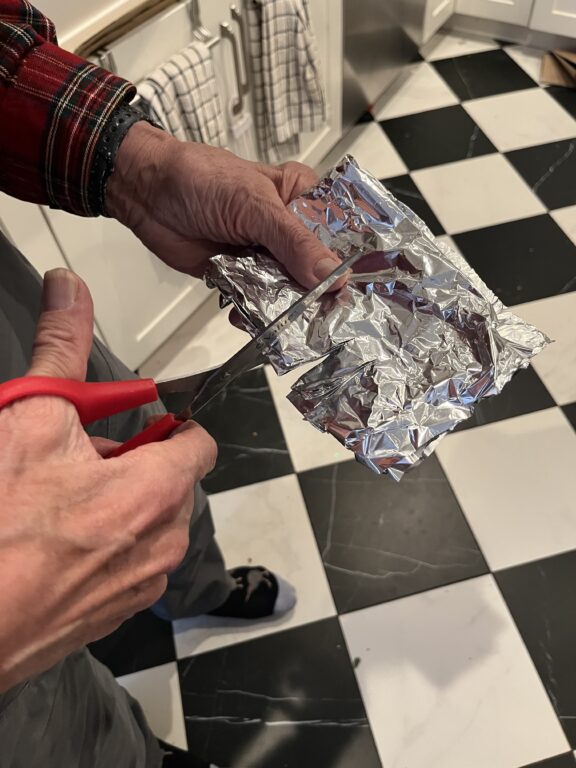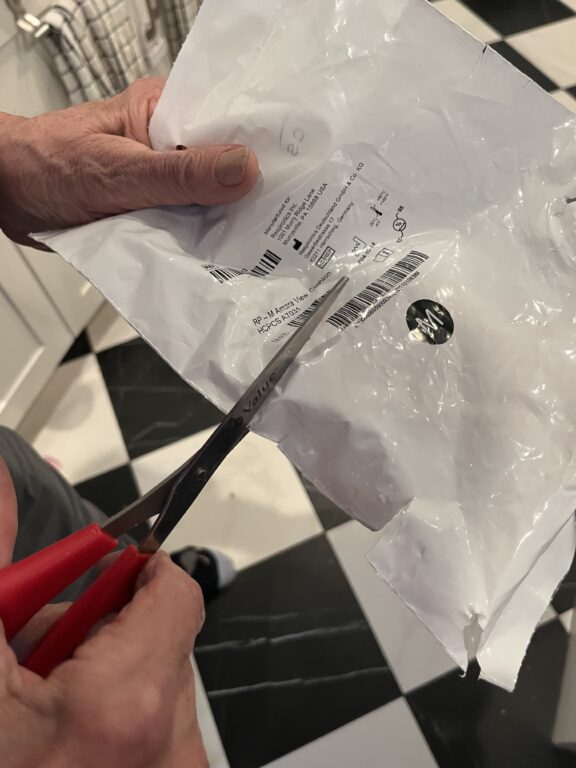Consumer Diary: Red Dye 3, Drug Middlemen Ripoff, Scissors Hack

Audio By Carbonatix

The hack to sharpen a dull pair of scissors: Make several cuts in tin foil. Photo credit: Harlan Levy
Consumer columnist and West Hartford resident Harlan Levy has more than 20 years of experience writing stories about everyday experiences that anyone could encounter.

Harlan Levy. Courtesy photo
By Harlan Levy
I assume many of you heard about the Federal Drug Administration’s Jan. 15 order prohibiting the use of Red Dye No. 3 in food and drugs you swallow.
In case you didn’t, the FDA made the move because such bans apply to ingredients that have caused cancer in animals or humans. There has been no evidence that humans have developed cancer from the dye, but rats have, so, following FDA law, the agency had to institute the ban. It affects some candy, cakes, frosting, icings, cupcakes, and various frozen desserts.
Here’s a more complete list: seasonal candies, such as candy corn and dyed marshmallows, frozen desserts, such as ice pops and ice creams with strawberry flavoring, Maraschino cherries, fruit cocktails, colored beverages, protein shakes, vegetarian meats, bacon bits, sausages, strawberry milk, some puddings.
As for immediate effect, don’t hold your breath. We have to wait til Jan. 15, 2027 for the ban to start, also the deadline for manufacturers to reformulate their affected products. Meanwhile, the hope is you don’t get the cancer from the dye before it’s banned.
Now you know.
Drug sales middlemen reap huge profits
Do you take any of a wide range of lifesaving drugs, including medications to treat heart disease and cancer, HIV, and a variety of other critical drugs, including the generic versions of Ampyra (used to treat multiple sclerosis), Gleevec (used to treat leukemia), Sensipar (used to treat renal disease), and Myfortic (used by transplant recipients)?
If you do take any of these drugs regularly, you should know you may be getting spectacularly ripped off by well-known third-party middlemen outfits that get the drugs to you, including the “Big 3” pharmacy benefit managers (PBMs) Caremark Rx, LLC (CVS), Express Scripts, Inc. (ESI), and OptumRx, Inc. (OptumRx).
In a report released Jan. 24, the Federal Trade Commission stated that the PBMs made “enormous” markups on numerous specialty generic drugs. The new report looked at 51 specialty generic drugs comprising 882 National Drug Codes dispensed at their affiliated pharmacies, raising prices by thousands of percent, and many others by hundreds of percent.
“Such significant markups allowed the Big 3 PBMs and their affiliated specialty pharmacies to generate more than $7.3 billion in revenue from dispensing drugs in excess of the drugs’ estimated acquisition costs from 2017-2022,” the agency said. The Big 3 PBMs netted such significant revenues all while patient, employer, and other health care plan sponsor payments for drugs steadily increased annually, the staff report said.
The preceding FTC report issued in July 2024 found that pharmacies affiliated with the Big 3 PBMs received 68% of the dispensing revenue generated by specialty drugs in 2023, up from 54% in 2016.
What’s more, the Big 3 PBMs imposed their markups on drugs dispensed at their affiliated pharmacies and reimbursed those affiliated pharmacies at a higher rate than they paid unaffiliated pharmacies on nearly every specialty generic drug examined. Indeed, a larger, disproportionate share of commercial prescriptions for specialty generic drugs were marked up more than $1,000 per prescription dispensed by the Big 3 PBMs’ affiliated pharmacies compared with unaffiliated pharmacies. “Dispensing patterns suggest that the Big 3 PBMs may be steering highly profitable prescriptions to their own affiliated pharmacies and away from unaffiliated pharmacies,” the FTC charged.
In total, the markup’s annual growth rate for the period studied was 42%, with the top 10 specialty generic drugs generating $6.2 billion of dispensing revenue in excess of the national average. The Big 3 PBMs also separately generated an estimated $1.4 billion of income from spread pricing – billing their plan sponsor clients more than they reimburse pharmacies for drugs.
And the PBM’s profit growth rate has continued.
In the Jan. 24 report “we also found that this problem is growing at an alarming rate, which means there is an urgent need for policymakers to address it,” said Hannah Garden-Monheit, director of the FTC’s Office of Policy Planning.
“The FTC should keep using its tools to investigate practices that may inflate drug costs, squeeze independent pharmacies, and deprive Americans of affordable, accessible healthcare – and should act swiftly to stop any illegal conduct,” GTC Chair Lina Khan wrote.
Dull scissors hack
I recently found this tip on how to sharpen dull scissors: Have the scissors make several cuts in tin foil. That should make the scissors “like new.”
Does it? I tried with two pair of scissors – one a child’s scissors, the other a much more “professional” pair of scissors. In my associated three photos with my bigger dull scissors I show how it could not cut a thin plastic bag. Then I made five cuts in some doubled-over tin foil. Finally, I tried to cut the plastic bag. Result: Failure. The same with the child’s scissors. Oh well.

My dull scissors cannot cut this thin plastic bag. Photo credit: Harlan Levy

The hack to sharpen a dull pair of scissors: Make several cuts in tin foil. Photo credit: Harlan Levy

After cutting tin foil several times, my dull scissors still weren’t sharpened – if at all – enough to cut the plastic. Photo credit: Harlan Levy
NOTE: If you have a consumer problem, contact me at [email protected] (“Consumer” in subject line), and, with the power of the press, maybe I can help.
Like what you see here? Click here to subscribe to We-Ha’s newsletter so you’ll always be in the know about what’s happening in West Hartford! Click the blue button below to become a supporter of We-Ha.com and our efforts to continue producing quality journalism.



